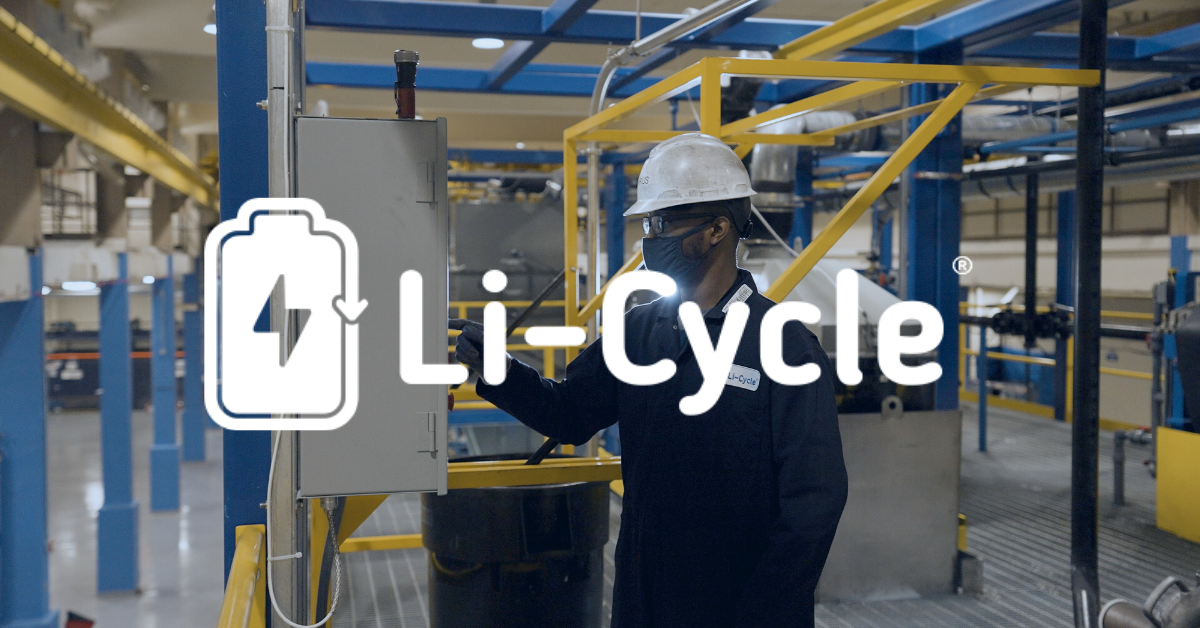



March 18, 2022



REUSE/RECYCLING
End-of-life lithium-ion batteries and the battery manufacturing scrap that’s generated along the way are proving to be a global issue. Ontario-based Li-Cycle is on top of it.
March 18, 2022
Original article published in The Spark Business & Innovation Magazine
Chemical engineer Ajay Kochhar and mechanical engineer Tim Johnston are the co-founders of Li-Cycle. They met while working at Hatch, a global multidisciplinary company that focused on hydrometallurgical and chemical plants to produce battery materials. During their time at Hatch the pair realized that there was a glaring lack of environmentally and economically sustainable recycling solutions for lithium-ion batteries. This prompted them to join forces and form Li-Cycle in 2016, to develop their own solution.
Together they created their patented Spoke & Hub Technologies which recover up to 95 percent of the valuable materials contained within end-of-life batteries and battery scrap waste generated during production. They then recirculate them back into the economy in a truly sustainable way.
This is a two-stage process. The first step is to take scrap from end-of-life batteries and battery manufacturing to their Spoke facilities where the material is reduced in size through a submerged shredding process. This generates three product materials: plastics, aluminum/copper and “black mass” (a substance that contains highly valuable materials like lithium, nickel and cobalt). This unique process reduces harmful emissions, and as the water from the process is recirculated, it works to eliminate water waste, too.
The battery material is then taken to Li-Cycle’s Hub facilities (their first commercial Hub facility is expected to be operational in 2023) and put through a hydrometallurgical circuit. Here the materials are isolated in a water-based solution and transformed into battery-grade lithium, cobalt and nickel, which are the same quality as their original counterparts (if not better) and can be put directly into new batteries.
Despite the challenges of the pandemic, Li-Cycle’s accomplishments over the last year are many. Not only did Li-Cycle make its debut as a publicly-traded company in the U.S. listing on the NYSE, but it also struck agreements with key players in the industry like Ultium Cells (a joint venture of General Motors and LG Energy Solution) and
LG Chem/LG Energy Solution. They also received several awards including Fast Company’s “Next Big Things In Tech” and announced new upcoming facilities in both North America and abroad.
But that’s just the beginning. By 2025 Li-Cycle plans to have 20 Spoke facilities and four Hub facilities around the world, to prevent end-of-life lithium-ion batteries from ending up in landfills and to further support sustainable global electrification.
